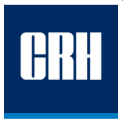Information
-
Document No.
-
Audit Title
-
Client / Site
-
Conducted on
-
Prepared by
-
Location
-
Personnel
-
Material from this audit is an interpretation of Fire Safety and Prevention Guidelines per OSHA regulations. The checklist was modeled from industry guidelines laid out on:
https://www.osha.gov/dte/library/ppe_assessment/ppe_assessment.html -
**INSTRUCTIONS**
Review the following audit to identify and evaluate need for Personal Protective Equipment in a given workplace.
Answer "SAFE" if employee is not likely to be exposed to work condition listed below.
Answer "AT RISK" if employee may be exposed to work condition
EYES
-
Eye and Protection Criteria
* Protect against specific hazard(s) encountered by employees
* Comfortable to wear
* Must not restrict vision or movement
* Durable and easy to clean and disinfect
* Must not interfere with the function of other required PPE
* Meets requirements of ANSI Z87.1-1989 for devices purchased after July 5, 1992 and ANSI Z87.1-1968for devices purchased before that date -
Employees Perform tasks, or work near employees that perform tasks, that might produce airborne dust or flying particles
-
Employees handle, or work near employees who handle hazardous liquid chemicals or encounter blood splashes
-
Employees' eyes exposed to other potential physical or chemical irritants
-
Employee exposed to intense light or lasers
FACE
-
Eye and Protection Criteria
* Protect against specific hazard(s) encountered by employees
* Comfortable to wear
* Must not restrict vision or movement
* Durable and easy to clean and disinfect
* Must not interfere with the function of other required PPE
* Meets requirements of ANSI Z87.1-1989 for devices purchased after July 5, 1992 and ANSI Z87.1-1968for devices purchased before that date -
Employee handles or works near employees who handle hazardous liquid chemicals
-
Employees' faces are exposed to extreme heat
-
Employees' faces are exposed to other potential irritants
HEAD
-
Tools or other objects may potentially fall from above and strike your employee on the head
-
Employees' heads, when they stand or bend, are near exposed beams, machine parts, pipes, etc.?
-
Employees work with or are in close proximity to electrical wiring or components of electrical wiring
FEET
-
Tools, heavy equipment or other objects may potentially roll, fall onto or strike employees' feet
-
Employees work with or are near exposed electrical wiring or electrical wiring components
-
Employees handle or work with those who handle molten metal
-
Employees work with explosives or are in an explosive atmosphere
HANDS
-
Employees' hands may come into contact with tools or materials that might scrape, bruise or cut
-
Employees handle chemicals that might irritate skin or come into contact with blood
-
Employees place their hands and arms near extreme heat
-
Employees' hands and arms are placed ear exposed electrical wiring or components
BODY
-
Employees' bodies exposed to irritating dust or chemical splashes
-
Employees' bodies exposed to sharp or rough surfaces
-
Employees' bodies exposed to extreme heat
-
Employees' bodies exposed to acids or other hazardous substances
HEARING
-
Employees are exposed to loud noise from machines, tools, music systems, etc.













